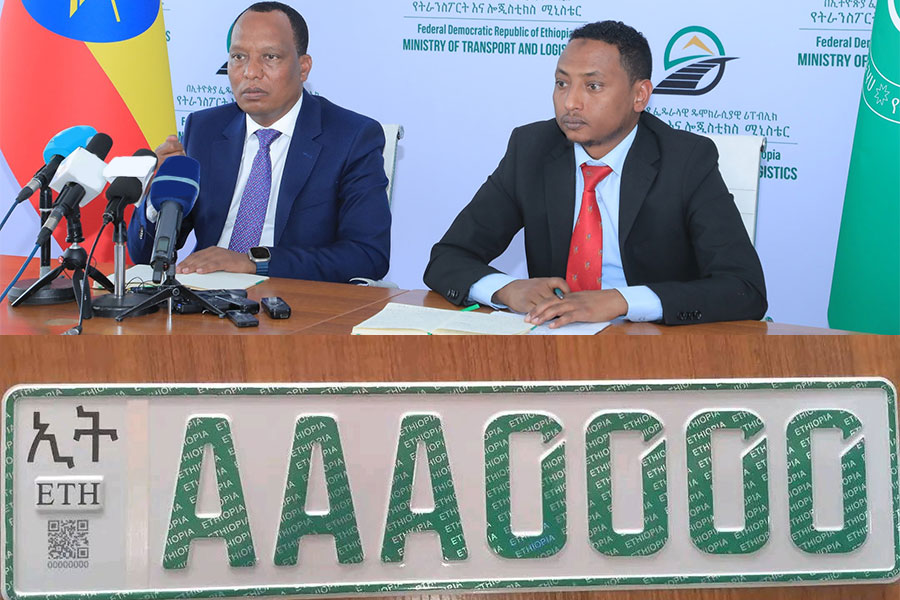
A new directive that will formally include the private sector in construction equipment valuation is currently in the making. Dubbed Construction Equipment Registration & Disposal, the draft directive was prepared by a team of experts from Bahir Dar University and also incorporates availing machinery permits and valuation services online.
The new law, which has passed three consultative stages, also introduces a slew of construction materials previously excluded in the law and unknown to the industry.
Applicable only to governmental institutions and enterprises, the previous law had no clear directions for the provision of valuation services to the private sector. This process was formerly carried out using circulars and letters within the Construction Work Regulatory Authority, making it difficult to track.
Incorporating this within a legal framework is expected to help monitor the private sector and the standard of equipment used in the industry, according to Abubeker Haji, acting director for construction input & equipment inspection at the Authority.
Among its other duties, the Authority provides technical assistance whenever a government body requires an asset valuation for audit or sale.
Only machines like bulldozers were relevant when the directive was last written. The amount and types of construction materials in the country were also minimal at the time, according to Abubeker.
"Now we have many different types from various countries on the market," he said.
The draft directive will replace the previous method of approximating types of machinery to similar varieties listed under the two-decade-old directive. It also introduces technical evaluation, previously executed manually, to be governed by specific guidelines for the valuation of machinery.
There are three general approaches to valuation, namely the cost, market an income-based approaches. While the first is aimed at replacing the cost of the machinery, the second assigns worth according to the current market value. The income-based approach will evaluate the machinery based on the income it is capable of generating.
The approaches can be further broken down into formulas that take into consideration initial price, devaluation, depreciation, and other indicators like bank debt, as well as relevant customs fees.
The recording of machinery is another factor addressed under the draft directive. Moving to a web-based system will ease recording and provision of evaluation services for customers, according to Abubeker.
"We can start providing this service from anywhere," Abubeker said. "This was a challenge brought on by the pandemic."
Methods of disposal enlisted in the draft directive include repurposing for other use, selling, gifting, burying or burning the equipment when all other options fail and the equipment is found to be harmful to the environment.
The baseline study for the draft was carried out by a team consisting of 10 professionals in fields like hydraulics, mechanics and information technology and around 20 university lecturers from Bahir Dar University. The University secured the work after winning a financial and technical evaluation. It will place the draft directive up for approval by the Authority, which is leading the consultation process.
Offering services online will make things easier for those who are registered in the city but operating elsewhere in the country, according to Eyob Tafesse, general manager at Kibish Construction, a local grade one construction company.
"This is much easier even for those operating in the city as it takes time to do all the necessary steps physically," he said.
The restructuring in valuation is vital since the system in use at different government institutes is outdated, according to him.
"It doesn't correctly reflect market value," he said. "It calculates price [of equipment] based on depreciation when the actual market value places it higher than when it was initially procured."
Though there are private companies that conduct asset valuation, the validity of their reports are questioned by some institutions, and a unified approach will help ease things, according to Eyob.
Consultants in the industry like Yonas Sebsibie, CEO at Cheetah Consulting Architects Plc, believes that while the legal framework change is commendable, ensuring that the Authority has capable personnel overseeing the valuation process is important.
"The personnel should be well-informed and familiar with the types and models of machinery," he said.
Using available online resources will also aid in detecting cases of under or over-invoicing, according to him.
PUBLISHED ON
Oct 31,2020 [ VOL
21 , NO
1070]

Fortune News | Sep 30,2021

Radar | Jan 09,2024

Radar | Dec 15,2024

Fortune News | Jul 17,2022

Fortune News | May 23,2021

Dec 22 , 2024 . By TIZITA SHEWAFERAW
Charged with transforming colossal state-owned enterprises into modern and competitiv...

Aug 18 , 2024 . By AKSAH ITALO
Although predictable Yonas Zerihun's job in the ride-hailing service is not immune to...

Jul 28 , 2024 . By TIZITA SHEWAFERAW
Unhabitual, perhaps too many, Samuel Gebreyohannes, 38, used to occasionally enjoy a couple of beers at breakfast. However, he recently swit...

Jul 13 , 2024 . By AKSAH ITALO
Investors who rely on tractors, trucks, and field vehicles for commuting, transporting commodities, and f...

Oct 4 , 2025
Eyob Tekalegn (PhD) had been in the Governor's chair for only weeks when, on Septembe...

Sep 27 , 2025
Four years into an experiment with “shock therapy” in education, the national moo...

Sep 20 , 2025
Getachew Reda's return to the national stage was always going to stir attention. Once...

Sep 13 , 2025
At its launch in Nairobi two years ago, the Africa Climate Summit was billed as the f...